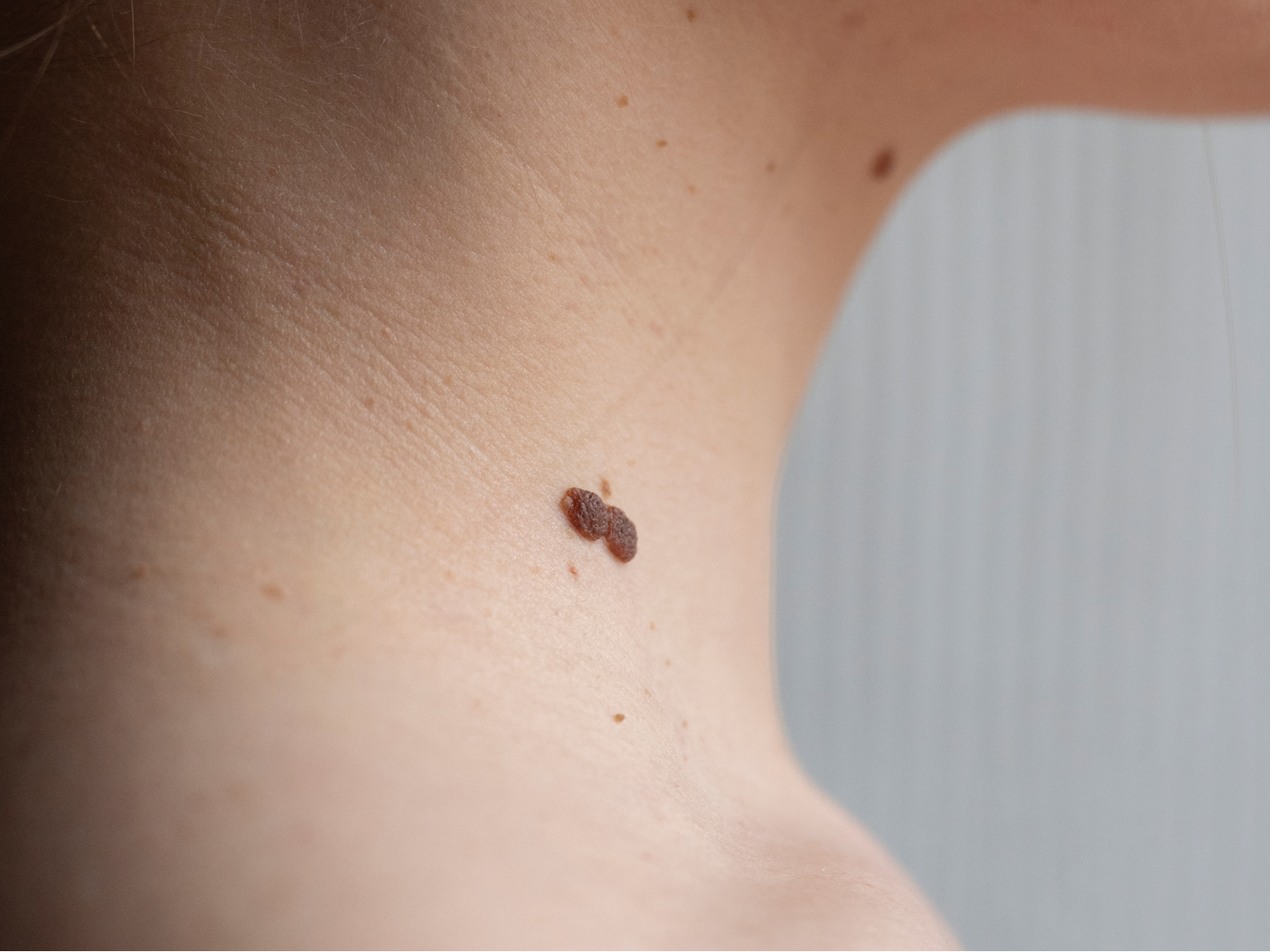Skin cancer is a type of cancer that forms in the cells of the skin. Skin cancer is usually caused by exposure to ultraviolet (UV) radiation from the sun or tanning beds, although other factors such as genetics and immune system function may also play a role.
There are several types of skin cancer, including:
Early detection is crucial for successful treatment, and prevention measures such as wearing protective clothing, seeking shade, and using sunscreen can help reduce the risk. By being aware of the risks and taking steps to prevent and detect skin cancer early, we can help reduce the impact of this disease.
Diagnosis of skin cancer usually involves a skin examination by a dermatologist, who will look for any suspicious growths or lesions on the skin.
Other tests, such as imaging scans or blood tests, may be done to determine the extent of the cancer and whether it has spread to other parts of the body.

Be aware of the risks of skin cancer in ethnic skin types and darker skin tones, and seek medical attention if you notice any unusual changes in your skin.
Staging is the process of determining the extent of the cancer, including the size of the tumor, how deeply it has invaded the skin, and whether it has spread to nearby lymph nodes or other parts of the body.
Diagnosis of skin cancer usually involves a skin examination by a dermatologist, who will look for any suspicious growths or lesions on the skin.
Other tests, such as imaging scans or blood tests, may be done to determine the extent of the cancer and whether it has spread to other parts of the body. Staging of skin cancer is based on the size, depth, and spread of the tumor, and can help guide treatment decisions. In general, earlier stages of skin cancer are easier to treat and have a better prognosis, so it’s important to catch the disease as early as possible.
Certain risk factors will increase your chances of developing skin cancer. These may include:
Ethnic skin types and darker skin tones should also be aware of their risk and may benefit from screening.
You can follow the rule of ABCDE to identify suspicious moles:
Protection of Treated Area |
After treatment for skin cancer, it’s important to protect the treated area to promote healing and prevent infection. Here are some tips to care for the treated area:
|
|
Follow-Up Appointments |
It’s important to attend all scheduled appointments and to report any new or concerning changes in your skin to your healthcare provider. |
|
According to MOH, the estimated bill size for a private hospital ACL reconstruction surgery can range from SGD 12,000 to 20,000 or more. For patients who prefer to undergo ACL surgery in a public hospital in Singapore, The cost of ACL surgery in a public hospital in Singapore can be significantly lower than in a private hospital, and can range from SGD 4,000 to 8,000 (approximately USD 2,950 to 5,900) or more, depending on the specific hospital and type of surgery performed.
SGD 4,000 - 8,000
SGD 12,000 - 20,000+
The estimated waiting time for non-emergency orthopedic surgeries is around 16 weeks.
We are dedicated to your skin health and well-being. Our results-oriented approach is suitable for a wide range of hair, skin and nail conditions. Consult our MOH-accredited dermatologist for a personalised treatment plan.
You can use your Integrated Shield Plans to pay for certain procedures. Speak to us to learn more, and you’ll be surprised at how affordable private healthcare can be.

MBBS (S'pore) MRCP (UK) FAMS (Dermatology)
Dr. Lee Hwee Chyen is an accredited Adult & Paediatric dermatologist managing a wide range of skin, hair and nail conditions. The clinic provides services for medical, surgical, cosmetic, women’s and paediatric dermatology.

Feel free to drop by our our clinic and meet our specialist
101 Irrawaddy Road #16-09
Royal Square at Novena, Singapore 329565
 +65 8701 7662 (WhatsApp Enquiries Only)
+65 8701 7662 (WhatsApp Enquiries Only)
Mon - Fri (09:00am - 05:30pm)
Sat (09:00am - 1:00pm)
Sun & Public Holidays (Closed)
We accept the following modes of payment:
If you are insured and would like to use a Letter of Guarantee (LOG) from the major insurers in Singapore, please contact us and our friendly clinic staff will assist you and provide more information if required.
We accept the following modes of payment:
If you are insured and would like to use a Letter of Guarantee (LOG) from the major insurers in Singapore, please contact us and our friendly clinic staff will assist you and provide more information if required.
We accept the following modes of payment:
If you are insured and would like to use a Letter of Guarantee (LOG) from the major insurers in Singapore, please contact us and our friendly clinic staff will assist you and provide more information if required.